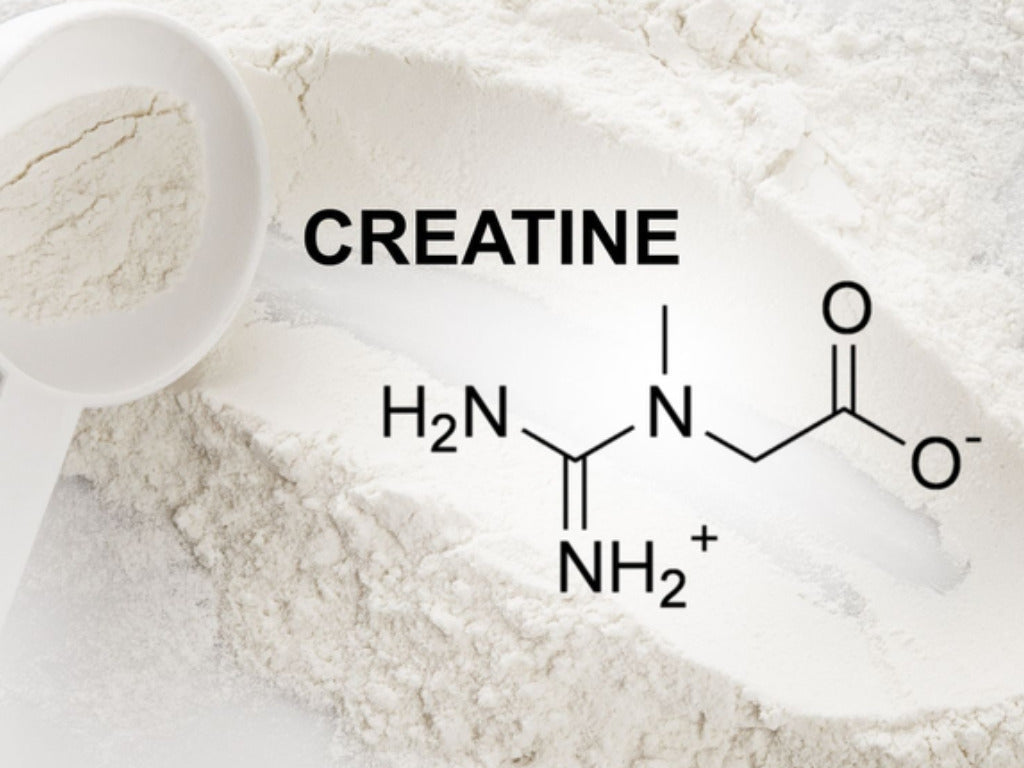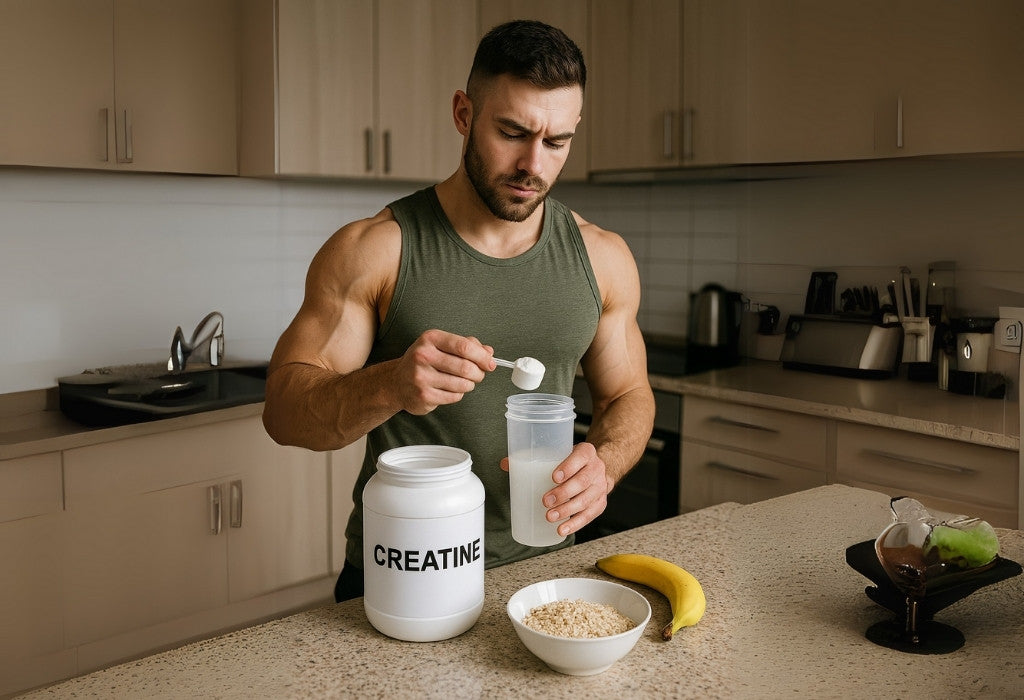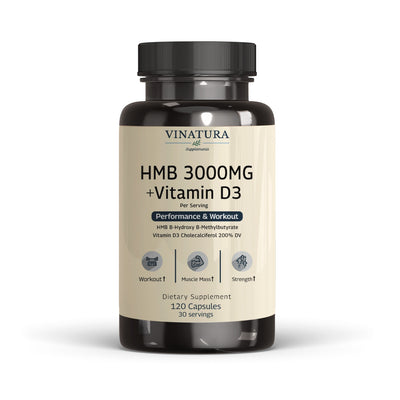
Should I Take Creatine On Rest Days?
Creatine is one of the most talked-about supplements for strength and performance—but are you using it wrong without even realizing it?
On forums like Reddit, countless users are puzzled—and even anxious—about whether they should take creatine on days they’re not training. “Am I just wasting it?”, “Is it useless when I’m not lifting?”, “What if it builds up and causes side effects?” These are the kinds of questions that come up again and again.*
These doubts can quietly sabotage your routine—and possibly your results. But what does science say? Are you missing a key part of how creatine really works? This article will break down the truth, clear up the confusion, and help you decide if you're actually hurting your gains by skipping creatine on off-days.
Before exploring further, please read the disclaimer located at the end of this webpage.
Key Takeaways
- Taking creatine daily—including on rest days—helps maintain muscle saturation and energy stores.
- Consistent supplementation supports muscle recovery, growth, and long-term performance improvements.
- Skipping creatine on rest days may reduce its effectiveness by lowering intramuscular levels over time.
- Scientific evidence refutes common myths about creatine, including weight gain, dehydration, and kidney harm.
- A daily dose of 3–5g, paired with hydration and proper nutrition, is both safe and effective for most users.
Should You Take Creatine On Rest Days?
Consistent daily creatine supplementation—including on non-training days—is widely recommended to help sustain intramuscular creatine levels and support performance-related outcomes over time.
This is because creatine is associated with elevated phosphocreatine levels in muscle cells, which are essential for rapid energy production during intense physical activity.
While no studies have directly tested the benefits of taking creatine specifically on rest days, the overall body of research supports the importance of daily dosing to maintain saturation.
Thus, it can be reasonably inferred that taking creatine on rest days continues to support muscle recovery and replenish energy stores, with no known adverse effects [4].
Exploring Reddit and X, I noticed the community strongly recommends taking creatine consistently, whether it’s a training day or a rest day. What really caught my attention was Sarah’s 30-day creatine journey—wife of famous bodybuilder Matt Morsia—shared on YouTube.
Sarah took 5g of creatine daily, even on rest days, and saw a noticeable improvement: her squat increased by 17.5kg in just 30 days! Matt couldn’t hide his excitement, saying, “Sticking to creatine every day really made a difference!”*

Benefits of Taking Creatine on Rest Days
Even on days you’re not working out, creatine might still have a place in your routine. Let’s take a look at what current research and user experiences suggest.
Maintains Muscle Creatine Saturation
Using creatine on rest days ensures your muscles stay packed with creatine and phosphocreatine at optimal levels. After the loading phase, a daily 5g maintenance dose—yes, even on rest days—keeps your muscles saturated.
"A number of studies indicate that long-term creatine supplementation increases FFM and/or muscle fiber diameter with no disproportional increase in total body water."
"Improvements have been reported in untrained and trained adolescents, adults, and elderly populations...These findings suggest that creatine supplementation during training serves to enhance training adaptations."
- Excerpt from “Effects of creatine supplementation on performance and training adaptations.” by Kreider, R. B. (2003).
These findings highlight that consistent creatine supplementation during training significantly enhances muscle growth and performance across diverse populations.
The term “daily” and “during training” in the context of supplementation, as noted in the report, implies intake on both training and rest days, ensuring sustained elevation of muscle creatine and phosphocreatine stores.
This continuous supplementation may support training adaptations by maintaining energy availability for muscle recovery and growth, even during rest days, ultimately contributing to increases in fat-free mass and strength without notable side effects [5].
Learn more: Should You Take Creatine In The Morning Or At Night?
Supports Muscle Recovery
Recovery isn’t just for training days—it’s a constant process [5,4]. Creatine helps your body rebuild ATP - the body’s energy currency through phosphocreatine, which fuels essential cellular processes.
By taking it regularly on rest days, you maintain steady energy levels, which supports efficient muscle repair and preps you for future sessions.
Supports Muscle Maintenance and Growth Over Time
Your muscles don’t stop growing just because you’re not training. Taking creatine on rest days creates the perfect environment for protein synthesis and satellite cell activity.
Combined with resistance training, studies show creatine can significantly boost muscle mass compared to training alone, fostering long-term growth [1,4]. This consistent support is key for lasting progress, ensuring your gains don’t stall on off days.
Improves Energy Storage
Creatine increases your phosphocreatine stores, a vital energy reserve for high-intensity efforts. By using creatine on rest days, you keep these reserves topped up, so your muscles are ready to produce ATP quickly during your next workout [1,4]. This ensures you maintain peak performance without starting from scratch after a rest day.
Potential Immune Support
Some studies have observed that creatine supplementation may influence certain biomarkers associated with physical stress, such as pro-inflammatory cytokines and PGE2 levels, particularly after intense endurance events like a half-ironman race [1,4].
While these findings are preliminary, they suggest a potential role for creatine in modulating the body’s physiological response to exercise. However, more research is needed to clarify its broader implications.
Learn more: 13 Best Creatine Supplements for Strength and Performance
Creatine in the Loading Phase, Maintenance Phase, and Rest Days

Studies show that using creatine typically starts with a loading phase, followed by a maintenance phase, which includes taking it on rest days. Research highlights different approaches.
The loading phase often involves a dose of 15-30g per day, split into 4-6 servings, over 3-7 days. For example, some studies used 20g daily for 5–7 days, while others used 25g daily for 7 days.
Then, the maintenance phase uses a lower dose of 2-10g per day, such as 5g daily for 65 days or 2g daily for 37 days, to keep creatine levels steady in your muscles.
Notably, a study by Antonio and Ciccone found that taking 5g of creatine anytime on rest days, or before and after workouts, ensures consistent benefits [1, 5, 4].
The chart below illustrates how creatine builds up in your muscles over time with different supplementation strategies:

As you can see from the chart, the percentages show estimated muscle creatine levels after 30 days, based on the chart’s trends:
- ~50% (A): Levels drop after stopping post-loading due to no further intake.
- ~90% (B): High, stable levels from consistent maintenance, including rest days.
- ~80% (C): Solid levels from daily use without loading, building up slowly.
- ~60% (D): Lower, fluctuating levels from irregular use only on training days.
The scenarios based on the chart are explained as follows:
|
Scenario |
Loading Phase |
Maintenance Phase |
Taken on Rest Days |
Creatine Level After 30 Days (%) |
|
A: Loading only (stop after 7 days) |
Yes |
No |
No |
~50% |
|
B: Loading + maintenance (daily) |
Yes |
Yes |
Yes |
~90% |
|
C: No loading, maintenance (daily) |
No |
Yes |
Yes |
~80% |
|
D: Irregular intake (only on training days) |
No |
Only on training days |
No |
lowest at ~60% |
These percentages reflect how each strategy affects muscle creatine levels over time, showing that consistent use, especially on rest days, plays a key role in maintaining optimal levels for long-term benefits.
Note: The content is synthesized from research and chart analysis, not a survey, and is for reference only.
How to Take Creatine on Rest Days

Using creatine on rest days requires a simple approach to keep its benefits steady. Here’s how to do it right, tailored for those rest days.
Dosage
Stick to a standard maintenance dose of 3-5 grams daily, whether you’re training or not. Unlike the loading phase (20-30g/day for 5-7 days), this lower, steady dose keeps your muscles saturated with creatine.
Studies show that 2-5g daily, including rest days, has been safely used for 3-6 months. You don’t need to increase the dose on training days—consistency is what matters to maintain effectiveness [1,5].
Timing
There’s no set time for rest days; you can take creatine whenever, though pairing it with a meal is recommended to boost absorption.
One study noted taking 5g “anytime” on rest days, unlike the pre- or post-workout focus on training days. This flexibility ensures stable creatine levels, keeping your muscles ready without being tied to your workout schedule [4].
You may also read: Should You Take Creatine Before Bed? Is It Effective?
Hydration
Make sure to drink plenty of water to support creatine’s cell-hydrating effects and overall performance.
While there’s no specific water intake guideline for rest days, creatine has been shown to help maintain hematocrit, regulate body temperature, and lower heart rate and sweat rate.
This is especially helpful on rest days, when your body focuses on recovery, ensuring you don’t get dehydrated from creatine’s indirect effects [3].
Diet
Pair creatine with carbohydrates to enhance absorption and maximize its benefits. Since creatine naturally occurs in red meat and seafood (1-3g/day), eating carb-rich foods on rest days can improve how your muscles take it up.
Unlike training days, where you might time it post-workout, rest days don’t need a specific timing—just ensure your diet supports good absorption [6,4].
Active Recovery
Engage in light activities like walking or yoga to improve blood flow and aid recovery alongside creatine use.
Although the sources don’t directly mention active recovery with creatine on rest days, gentle movement helps your muscles absorb nutrients better. Unlike heavy training days, active rest on off days supports creatine’s effects without overworking your body [2,6].
Why It Matters
The main goal of taking creatine on rest days is to maintain muscle saturation—95% of creatine is stored in your skeletal muscles. This consistency ensures your body stays primed for performance and recovery, even when you’re taking a break from the gym.
Myths About Taking Creatine on Rest Days
Myth 1: Creatine Only Works on Workout Days
Many people believe creatine only works when you’re training, but that’s not true. Creatine keeps your muscles saturated, supporting recovery even on rest days. On Reddit, some users suggest it’s more effective to take creatine every day (no matter what you’re doing), while others aren’t sure if it’s necessary on rest days.*
Myth 2: Creatine Causes Weight Gain
The idea that creatine causes weight gain from water retention is common. However, studies show the weight gain is mostly lean mass (FFM) [5]. Many also confirm this isn’t fat gain but rather water stored in the muscles.
Myth 3: Creatine Is Harmful for Long-Term Use
I’ve heard concerns that creatine might harm your kidneys if used long-term, but evidence doesn’t support this. A pilot study on athletes showed high doses (20-30g/day for 7 days, then 5g/day for 2 years) caused no issues with kidneys or liver [1].
Myth 4: Creatine Causes Cramps and Dehydration
The media once spread claims that creatine causes cramps and dehydration, which might have made you hesitant at first. It’s true you need to drink more water with creatine than without.
But don’t worry—research has debunked this, even showing creatine improves performance in hot conditions by maintaining hematocrit and reducing heart rate and sweat rate [3]. Still, as a supplement, pairing it with extra water helps your body adjust smoothly.
Myth 5: Creatine Causes Hair Loss
Some believe creatine boosts DHT—a male hormone linked to hair loss—leading to the myth that it causes hair loss. However, studies haven’t found evidence to support this.
Plus, gym workouts can also increase DHT to some extent, so if you’re obsessed with hair loss, you might need to skip training altogether! YouTuber Cole Baker shared in his 30-day creatine experience that he noticed no hair loss symptoms.*
Myth 6: You Don’t Need Much Training to See Creatine Benefits
Long-term studies (over weeks or months) evaluating creatine’s effectiveness were done with participants in training programs, usually resistance training [5,4].
Conclusion
Daily creatine intake, including on rest days, may help maintain muscle creatine saturation and support overall training consistency, based on available research. Research has debunked myths like creatine causing unwanted weight gain or kidney damage, with a daily 3-5g dose being safe, even on non-training days. So, are you ready to maximize creatine’s benefits by using it consistently, or do you still have some doubts holding you back?
Testimonial Disclaimer
*The testimonials presented on this website are provided by individuals based on their personal experiences with our products. These testimonials represent individual opinions and experiences, which may not be typical or applicable to all users of our products. Results may vary depending on a variety of factors, including individual health, lifestyle, and adherence to product usage instructions.References
- [1] Graham, Angie S., and Randy C. Hatton. “Creatine: A Review of Efficacy and Safety.” Journal of the American Pharmaceutical Association (1996), vol. 39, no. 6, Nov. 1999, pp. 803–810, https://doi.org/10.1016/s1086-5802(15)30371-5.
- [2] Evangelista, Renato, et al. “Rest Interval between Resistance Exercise Sets: Length Affects Volume but Not Creatine Kinase Activity or Muscle Soreness.” International Journal of Sports Physiology and Performance, vol. 6, no. 1, Mar. 2011, pp. 118–127, https://doi.org/10.1123/ijspp.6.1.118. Accessed 8 Apr. 2020.
- [3] Dalbo, V J, et al. “Putting to Rest the Myth of Creatine Supplementation Leading to Muscle Cramps and Dehydration.” British Journal of Sports Medicine, vol. 42, no. 7, 18 Apr. 2008, pp. 567–573, https://doi.org/10.1136/bjsm.2007.042473. Accessed 6 Oct. 2020.
- [4] Forbes, Scott C., and G. Candow. “Timing of Creatine Supplementation and Resistance Training: A Brief Review.” Journal of Exercise and Nutrition, vol. 1, no. 5, 10 Oct. 2018, www.journalofexerciseandnutrition.com/index.php/JEN/article/view/33.
- [5] Kreider, Richard B. “Effects of Creatine Supplementation on Performance and Training Adaptations.” Molecular and Cellular Biochemistry, vol. 244, no. 1-2, 1 Feb. 2003, pp. 89–94, pubmed.ncbi.nlm.nih.gov/12701815/.
- [6] Bilancio, Giancarlo, et al. “Effects of Bed-Rest on Urea and Creatinine: Correlation with Changes in Fat-Free Mass.” PLoS ONE, vol. 9, no. 9, 29 Sept. 2014, p. e108805, https://doi.org/10.1371/journal.pone.0108805.
Author

Product Disclaimer
The dietary supplement products mentioned on this website are formulated based on scientific research and adhere to FDA guidelines for dietary supplements. However, the content of the articles has not been evaluated by the Food and Drug Administration (FDA) and is not intended to promote or endorse any specific product. Any products sold on this website are not intended to diagnose, treat, cure, or prevent any disease.
Opinions and Endorsements
Any claims, statements, or opinions expressed in the articles are those of the author(s) and do not necessarily reflect the views or opinions of the manufacturers of the dietary supplement products. The products sold on this website are separate from the content of the articles and are not directly endorsed or associated with the information presented here.
Liability Disclaimer
The author(s) of the articles, website, and manufacturers of the dietary supplement products do not assume any liability for any potential consequences arising from the use of the information provided in the articles. It is recommended that individuals consult with a qualified healthcare professional before making any dietary or lifestyle changes, including the use of dietary supplements.
Product Usage
Please refer to the product labels and packaging for specific usage instructions and guidelines for the dietary supplement products sold on this website.
Customer Support
For any concerns or questions regarding the dietary supplement products, please contact our customer support team, who will be more than happy to assist you.





Leave a Comment
Be the first to comment.
What do you think?